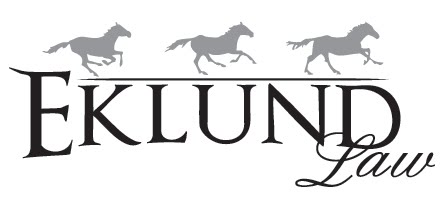Companion bills introduced in the State House and Senate would establish a program to enhance habitat for honeybees and other pollinators on State lands. The program also would allow pollinator-enhancement on certain lands subject to conservation easements. The House bill is H.F. 595; the Senate bill is S.F. 1371.
Interest in pollinator habitat has increased across all sectors of agricultural interests, from urban growers and suburban hobby farmers to large commercial farmers. For more information about the importance of pollinators and how to foster healthy pollinator habitat on your own property, visit the University of Minnesota Extension program.
Monday, March 18, 2013
Sunday, March 17, 2013
New horse slaughter bill aimed at preventing human consumption of drug-tainted horsemeat
A bill introduced on March 11, 2013, in the United States House of Representatives would ban the transportation of horses or horse parts in interstate commerce by anyone who knows or should know the horse or parts are intended for human consumption. The full text of H.R. 1094 can be viewed here.
Previously an effective ban on transporting horses intended for slaughter was accomplished by Congressional refusal to fund USDA inspections of slaughtering facilities that processed horses. In 2011, Congress lifted the restriction, enabling the processing of horses in the United States. But the recent scandal in the United Kingdom surrounding undisclosed tainting of beef products with horse meat brought attention to another problem: in the United States, horses routinely are treated with drugs such as phenylbutazone (commonly called bute for short), which is toxic to humans in even small amounts. A recent exposé in Newsweek cites a study in Food and Chemical Toxicology that found:
The bottom line: horse meat is not regulated for human consumption in the United States, and American horses probably aren't safe for people to eat.
The new law banning transportation of horses for slaughter would only apply to horses intended for human consumption, so horses still could be shipped for slaughter if they are intended for animal consumption. A primary market for horse meat in the United States is zoos, to feed horse meat to carnivores.
Previously an effective ban on transporting horses intended for slaughter was accomplished by Congressional refusal to fund USDA inspections of slaughtering facilities that processed horses. In 2011, Congress lifted the restriction, enabling the processing of horses in the United States. But the recent scandal in the United Kingdom surrounding undisclosed tainting of beef products with horse meat brought attention to another problem: in the United States, horses routinely are treated with drugs such as phenylbutazone (commonly called bute for short), which is toxic to humans in even small amounts. A recent exposé in Newsweek cites a study in Food and Chemical Toxicology that found:
[B]ute causes bone-marrow depression like aplastic anemia, agranulocytosis, thrombocytopenia, leucopenia, pancytopenia, and hemolytic anemia, which are fatal in the vast majority of cases. The elderly are more susceptible than younger adults. The risks for developing bone-marrow depression and other serious effects are heightened because humans metabolize bute into oxyphenbutazone, which also causes bone-marrow depression.
The study also demonstrates that children are at increased risk of developing aplastic anemia from minute levels of bute and oxyphenbutazone in horse meat, presumably because their bones are still growing. But even very low levels of bute can result in a hypersensitivity reaction in susceptible adults that’s mostly fatal. All of these effects are considered to be idiosyncratic, meaning it is unknown who will be afflicted.
The bottom line: horse meat is not regulated for human consumption in the United States, and American horses probably aren't safe for people to eat.
The new law banning transportation of horses for slaughter would only apply to horses intended for human consumption, so horses still could be shipped for slaughter if they are intended for animal consumption. A primary market for horse meat in the United States is zoos, to feed horse meat to carnivores.
Saturday, March 16, 2013
Taxes on services scrapped
Confronted with strong resistance from business leaders as well as many within his own party, Governor Dayton has backed away from his proposal to impose new taxes on services. His new plan would raise income taxes on the wealthy. The House and Senate now will consider their own proposals. Stay tuned to see how agricultural policy may be affected and impact your farm or ranch business.
Subscribe to:
Posts (Atom)
